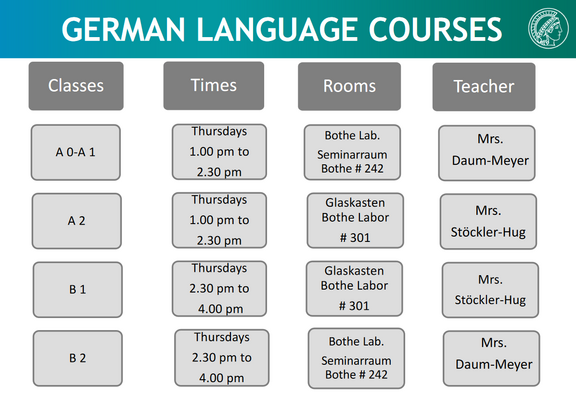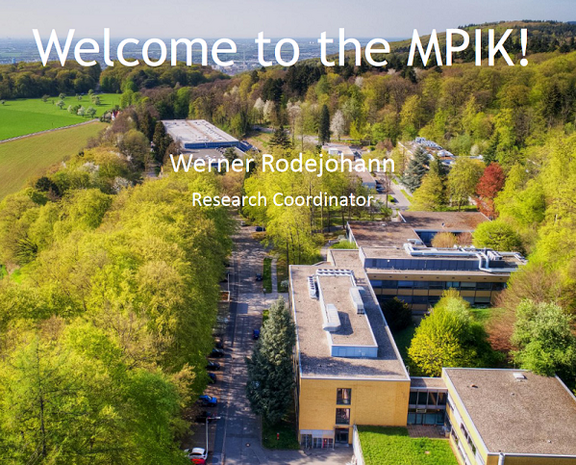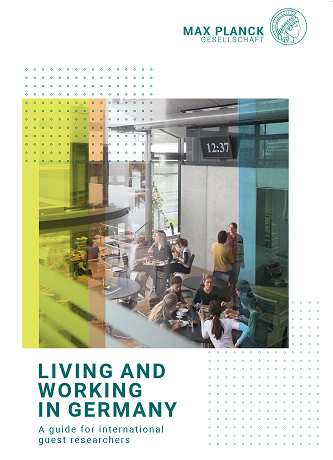Arbeiten am Institut
Das MPIK ist eines von 83 Instituten der Max-Planck-Gesellschaft (MPG); andere Institute in Heidelberg sind das Max-Planck-Institut für Astronomie, das Max-Planck-Institut für medizinische Forschung und das Max-Planck-Institut für ausländisches öffentliches Recht und Völkerrecht.
Das MPIK ist Teil der Chemisch-Physikalisch-Technischen Sektion (CPTS) der MPG. Die Sektion ist für die Ernennung der Institutsleiter zuständig.
Das MPIK wird, wie die meisten Institute der MPG, von einem Direktorium bestehend aus 5 Direktoren geleitet. Jeder dieser Direktoren führt eine wissenschaftliche Abteilung und übernimmt im Turnus für (in der Regel) drei Jahre die Position des geschäftsführenden Direktors. Max-Planck-Institute sind unabhängig und autonom in der Auswahl und Durchführung ihrer Forschungsarbeiten (obwohl es eine umfangreiche Zusammenarbeit zwischen den Instituten gibt). Institute verfügen über ihr eigenes, intern verwaltetes Budget, das normalerweise durch Drittmittel ergänzt wird. Obwohl Max-Planck-Institute rechtlich zur MPG gehören und von deren zentralen Verwaltung unterstützt werden, haben die MPIs ihre eigene lokale Verwaltung, die sich um Personal, Finanzen und Beschaffung kümmert. Als Mitarbeiter*in, Stipendiat*in oder Gastwissenschaftler*in werden Sie normalerweise ausschließlich mit der lokalen MPIK-Verwaltung zu haben.
Die Mitarbeiter des MPIK werden durch den gewählten Betriebsrat des MPIKs vertreten. Ein gewählter Vertreter der MPIK-Wissenschaftler nimmt an den Treffen und Aktivitäten der CPTS teil. MPIK-Studenten wählen ihre (internen) Vertreter, die u.a. als Schittstelle zum Direktorium in studentischen Angelegenheiten. Eine gewählte Gleichstellungsbeauftragte kann in geschlechtsspezifischen Fragen konsultiert werden.
Das MPIK ist zwar völlig unabhängig, pflegt aber enge Beziehungen zur Universität Heidelberg, insbesondere zur Fakultät für Physik und Astronomie. Viele der Gruppenleiter des MPIK lehren an der Universität. MPIK-Studenten promovieren in der Regel an der Universität Heidelberg und sind verpflichtet, sich an der Lehre zu beteiligen, indem sie zwei Vorlesungen oder gleichwertige Veranstaltungen betreuen.
Gemeinsam mit der Universität Heidelberg beteiligt sich das MPIK an drei International Max Planck Research Schools (IMPRS): IMPRS for Precision Tests of Fundamental Symmetries, IMPRS for Quantum Dynamics in Physics, Chemistry and Biology and IMPRS for Astronomy & Cosmic Physics. Es ist zwar nicht verpflichtend Mitglied einer IMPRS zu sein, aber die meisten Studenten sind es dennoch. Die Heidelberg Graduate School of Fundamental Physics (HGSFP) dient als gemeinsamer Rahmen für Physik- und Astronomiestudenten innerhalb und außerhalb der IMPRS.

Das MPIK bietet für Institutsmitglieder und Gastwissenschaftler Deutschkurse an.
Bei Fragen zu den Kursen wenden Sie sich bitte an:
Natascha Bruch Email: natascha.bruch@mpi-hd.mpg.de
Die Arbeitszeit für Beschäftigte im öffentlichen Dienst beträgt 39 Stunden pro Woche. Bei Wissenschaftlern werden die Arbeitszeiten nicht offiziell erfasst (im Gegensatz zu allen anderen Arbeitnehmern). Das Institut bietet flexible Arbeitszeiten an; Mitarbeiter können am Institut zwischen 6:30 und 19:30 arbeiten. Die Kernarbeitszeit - in der die Mitarbeiter anwesend sein sollten - ist zwischen 9:25 und 14:25 Uhr. Wissenschaftliches Arbeiten kann selbstverständlich andere Arbeitszeiten erfordern; spezielle Vereinbarungen in dieser Hinsicht treffen Sie bitte mit Ihrem Vorgesetzten. Unsere Sicherheitsvorschriften verlangen, dass Sie nicht länger als 10 Stunden arbeiten dürfen und sich danach mindestens 11 Erholungszeit anschließen. Außerhalb der regulären Arbeitszeiten ist Büroarbeit erlaubt, aber für alle anderen Aufgaben, wie z.B. Laborarbeiten, muss eine zweite Person anwesend sein. Bitte stimmen Sie sich diesbezüglich mit Ihrem Vorgesetzten ab.
Alle MPIK-Mitarbeiter und Gastwissenschaftler sind berechtigt, die EMBL-Kantine oder Cafeteria zu benutzen. Mittagessen wird in der Kantine zwischen 11:45 Uhr und 13:30 Uhr angeboten. Die Cafeteria ist von 8 - 17 Uhr geöffnet.
Sie bezahlen Ihr Essen mit Ihrer MPIK-ID-Karte, nachdem Sie diese am Kartenterminal im Foyer der EMBL-Kantine oder Cafeteria aufgeladen haben. Der Betrag auf der Karte wird im EMBL-System erfasst und kann bei Verlust oder Fehlfunktion des Ausweises erstattet werden. Wenn Ihre Karte beschädigt wird, verloren geht oder nicht mehr benutzt wird, kann der restliche Betrag aus dem System ausgelesen und entweder in bar ausgezahlt oder auf Ihre neue Karte übertragen werden. Melden Sie sich mit Ihrem neuen MPIK-Mitarbeiterausweis und Ihrer alten Kartennummer bei der EMBL-Kassenstelle.
Auf den Ausweisen befindet sich ein separates (!) Konto für die Kaffeemaschinen des MPIKs; ein Terminal zum Aufladen dieses Kontos befindet sich im Eingangsgebäude des MPIKs. Bitte beachten Sie, dass dieses “Kaffeekonto” nur auf Ihrem Ausweis vermerkt ist und bei Verlust oder Beschädigung des Ausweises nicht erstattet werden kann.
Das MPIK verfügt über eine Kinderbetreuungseinrichtung auf dem Campus, “Kita Quantenzwerge”. Derzeit gibt es eine Krippe mit drei Gruppen für Kinder im Alter von 6 Monaten bis 3 Jahren und eine Kindergartengruppe für Kinder ab 3 Jahren bis zum Grundschuleintritt. Es ist wichtig, dass Sie sich bereits frühzeitig und lange vor Ihrer Ankunft in Deutschland für einen Betreuungsplatz anmelden. Die Einrichtung ist in der Regel montags bis freitags zwischen 7 und 17 Uhr geöffnet. Mitarbeiter und Gastwissenschaftler des MPIKs werden bei der Anmeldung bevorzugt, es gibt aber normalerweise eine Warteliste.







